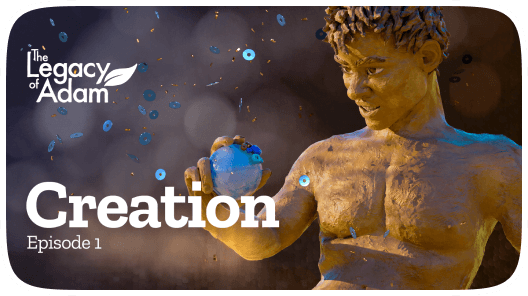Featured Videos
Ep 5: Envy
Sarai’s desperation leads to conflict. Hagar’s pregnancy causes tension. A miracle gives her hope. She returns, pregnant.
Ep 6: A Son
Abraham and Sarah receive news of a son, Isaac, from God, despite their old age.
Ep 7: Torn
Abraham’s promise of a son is fulfilled with Isaac’s birth. Joy turns to tension as Ishmael’s jealousy grows.
Ep 8: Unbearable
Abraham’s faith is tested as he prepares to sacrifice Isaac, thus highlighting the challenges of adhering to divine will.
Ep 9: Sacrifice
Abraham’s faith and obedience earn God’s promise of blessings, a lasting covenant, and a key role in His plan for humanity.
Ep 4 | Count the Stars
Abram, called by God, embarks on a faith-driven journey, receives a divine promise of countless descendants, and seals a covenant with God, marking a pivotal moment in his life of faith and obedience.
Bible Reference
Related Sources
Related FAQs
To delve deeper into the rich symbolism and theological interpretations surrounding Abraham’s covenant with God, consider exploring our scholarly articles that analyze these themes from various perspectives.
The Bible doesn’t say Abraham was morally better than others. What made him stand out was his willingness to trust and obey God, even without knowing where he was going. God’s choice of Abraham is about grace and purpose, not favoritism.
Yes. The Qur’an refers to Abraham (Ibrahim) leaving his people because of their idolatry. Abraham came from Babylon where other gods were worshipped and had dominion. Like in the Bible, he rejects the worship of stars and idols and chooses to follow the one true God. Both traditions honor Abraham as a model of faith and obedience.
It expresses God’s promise that Abraham’s family would grow into a great people, as many as the stars. Stars also reflect knowledge and heavenly attributes, it reflects on rulership of the earth. For Christians, this also includes all who share Abraham’s faith, not just his bloodline.
This question touches on justice. The Bible acknowledges other peoples in the land and shows that God’s timing included their moral state (Genesis 15:16). The conflict of land is not only terrestrial, but a conflict between God and his rebellious angels. The existing people living in the land promised to Abraham followed gods and giants in opposition to God. The land promise is not just about territory, but about a space where God’s purpose could unfold.
Yes. Ibrahim is honored as a prophet and ancestor to many—especially through his sons Ishmael and Isaac. Muslims trace their spiritual heritage through Ishmael, while Jews and Christians trace through Isaac. In all traditions, Abraham is called a friend of God.
Because he believed God’s promise even when it seemed impossible. He left his home, trusted in a future son despite his old age, and followed without full answers. Paul uses Abraham as a model: he was made right with God not by works, but by faith.
In the ancient Near East, this was how serious covenants were sealed. Two parties would cut animals in half and walk between the pieces, symbolizing: “May I become like these animals if I break this covenant.” But in Abraham’s case, only God (in the form of a fire pot and blazing torch) passes through—showing that God takes full responsibility for the promise. This was not a master-servant arrangement, but a covenant made as between equals in form, yet carried solely by God in content.
A covenant is more personal and binding than a contract. It’s not about mutual benefit but deep loyalty. When God makes a covenant with Abraham, He commits Himself unconditionally to fulfill the promise—even symbolically taking both sides of the agreement in Genesis 15.
According to the Bible, Abraham had moments of fear, doubt, and even disobedience. He lied about his wife, questioned God’s timing, and tried to fulfill the promise his own way through Hagar. Yet God remained faithful. In contrast, Islamic tradition teaches that prophets are sinless and do not commit serious errors (ma’sum). The Qur’an portrays Ibrahim as a pure model of obedience. However, the Bible gives a fuller and more nuanced picture: Abraham is not perfect, but he is faithful. His greatness lies not in flawlessness, but in returning to trust God again and again. The biblical account is far more detailed and personal, showing Abraham’s journey as one of real struggle and real trust.
















